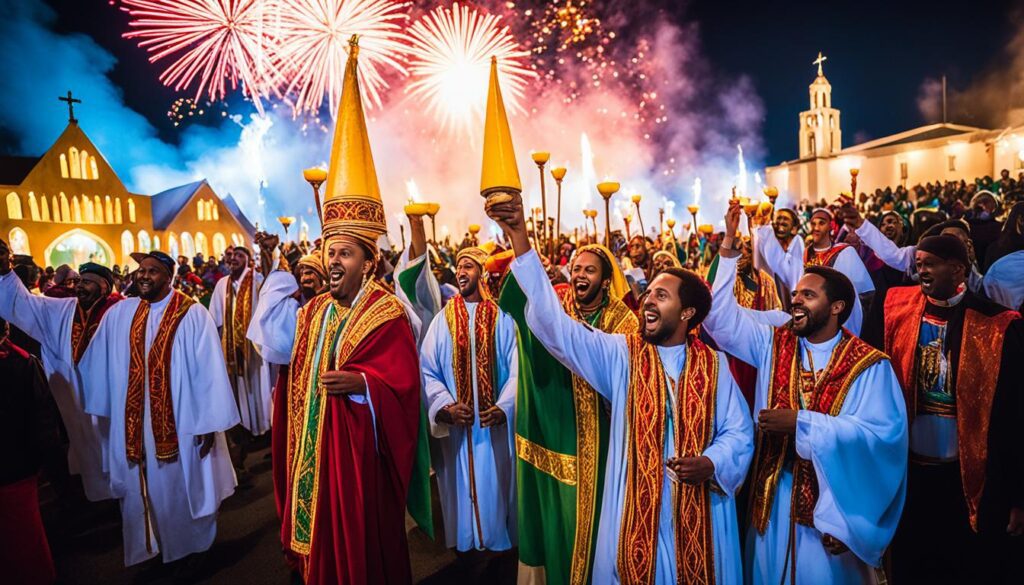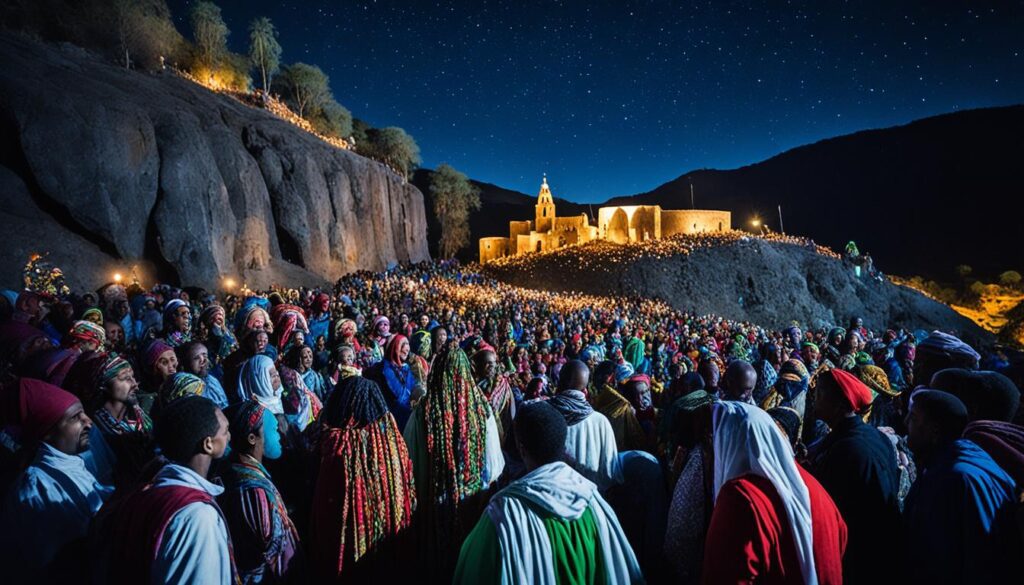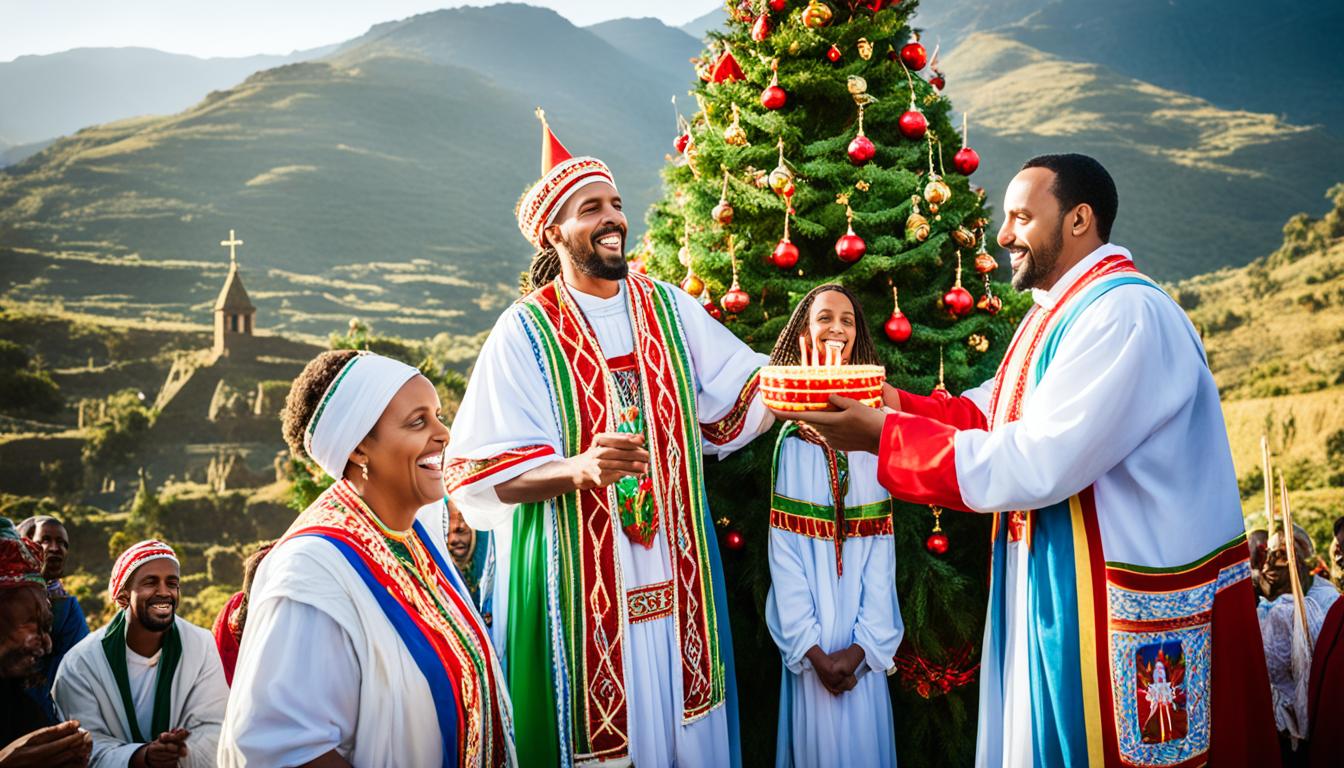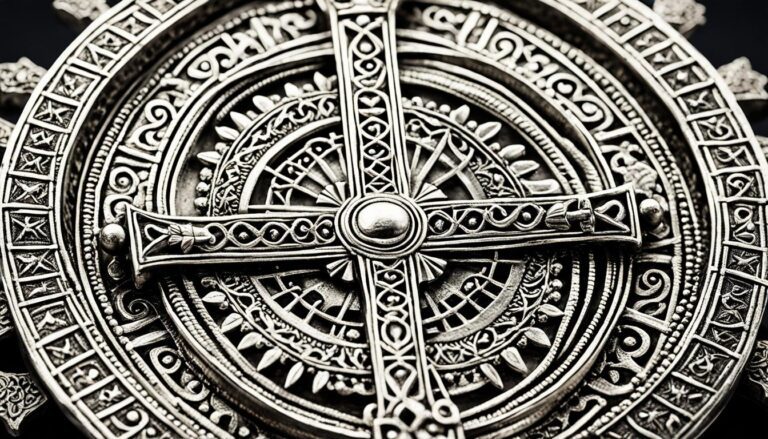Does Ethiopia Celebrate Christmas?
When it comes to Christmas celebrations, most people envision twinkling lights, snow-covered landscapes, and cozy gatherings with loved ones. But did you know that in Ethiopia, Christmas is celebrated on a different day altogether? It’s true! In this article, we’ll explore the fascinating traditions and customs of Ethiopian Christmas, shedding light on a festive season that will surely surprise you.
Unlike the commonly known December 25th celebration, Ethiopia celebrates Christmas on January 7th, according to the Ethiopian Orthodox Tewahedo Church. This unexpected fact showcases the country’s rich cultural heritage and unique traditions that set it apart from the rest of the world. Let’s dive in and discover the wonders of Ethiopian Christmas!
Key Takeaways:
- Ethiopia celebrates Christmas on January 7th according to the Ethiopian Orthodox Tewahedo Church.
- The celebration is known as Ganna or Genna in the Ethiopian Orthodox Church.
- A special Advent fast called Tsome Nebiyat is observed for 43 days before Christmas.
- Traditional Christmas foods in Ethiopia include a spicy stew called Wat, served on a plate of injera, a flatbread.
- The focus of Ethiopian Christmas is on the spiritual and communal aspects, rather than gift-giving and consumerism.
Ethiopian Christmas Customs and Traditions
During the Ethiopian Orthodox Church’s celebration of Ganna, there are several unique customs and traditions that are observed.
- Candle Procession: One of the highlights of the Ganna celebrations is a solemn candle procession around the church. People hold candles and walk around the church three times, symbolizing the journey of the Wise Men to visit the newborn Jesus.
- Christmas Church Service: The Christmas church service in Ethiopia takes place in circular churches, which are constructed with three circles to resemble traditional Ethiopian houses. The outer circle is where the choir sings, while the inner circle is divided by gender. Men and boys occupy the inner circle, where the Holy Communion is served, while women and girls are seated separately.
- Connection to the Wise Men: Ethiopian Christmas holds a special significance, as one of the Wise Men who visited Jesus is believed to have come from Ethiopia. This connection adds to the reverence and devotion of the Ethiopian Orthodox Church’s celebration.
- Traditional Game – Ganna: Ethiopians engage in a traditional game called Ganna during the Christmas festivities. The game is played with a curved stick and a round wooden ball, and it resembles field hockey. Ganna is a popular activity that brings people together and adds to the joyous atmosphere of the celebration.
- Traditional Clothing: Ethiopians wear traditional clothing during the Christmas celebrations, and one prominent garment is the Netela. The Netela is a thin, white cotton cloth with colored stripes, often worn as a shawl or a wrap-around skirt. It adds a vibrant touch to the attire and symbolizes cultural pride.
While the Ethiopian capital city, Addis Ababa, showcases modern architecture, traditional houses in rural areas have unique characteristics. The houses are often round with mud-plastered walls and thatched cone-shaped roofs. These traditional dwellings reflect the rich cultural heritage of Ethiopia and provide a glimpse into the country’s history and traditions.
Through these customs, traditions, and clothing, the Ethiopian Orthodox Church immerses its followers in a cultural celebration that is deeply rooted in spirituality and heritage.
Ethiopian Christmas Festivities

Ethiopian Christmas is a communal experience and a commitment to faith. The celebration is steeped in tradition and brings people together in joyous festivities that honor the birth of Jesus Christ. One of the best places to experience Ethiopian Christmas is in the ancient city of Lalibela, home to the renowned 13th-century rock-hewn churches.
On Christmas Eve, the celebrations kick off with overnight mass, which begins at 6:00pm and culminates at 3:00am. The solemn and enchanting atmosphere is heightened by a long looping procession around the church, accompanied by a choir singing hymns and the melodic sounds of traditional instruments.
On Christmas Day itself, a traditional game known as Yeferas Guks takes center stage. In this game, participants ride on horseback and throw ceremonial spears, showcasing their skills and athleticism. It is a thrilling spectacle that adds an element of excitement to the day’s festivities.
Unlike in many other parts of the world, gift-giving is not a typical custom during Ethiopian Christmas. The focus is primarily on the spiritual and communal aspects of the celebration, where families and friends come together to share in the joy of the season.
Ethiopian Christmas in Lalibela

Lalibela, a magnificent destination steeped in history and culture, offers a truly enchanting experience of Ethiopian Christmas. A pilgrimage site for devout believers, Lalibela is known for its ancient rock-hewn churches, carved from solid rock. These extraordinary structures are not only architectural wonders but also hold great spiritual significance.
During Ethiopian Christmas, pilgrims from all over the country gather in Lalibela to celebrate this sacred occasion. As they enter the churches, draped in white robes, a sense of reverence and awe fills the air. The flickering glow of thousands of vigil lights illuminates the interiors, creating a mesmerizing and mystical ambiance that transports visitors to a different time and place.
The churches in Lalibela, a UNESCO World Heritage site, are a testament to the rich cultural heritage of Ethiopia. Each church has its own unique architectural style and significance, contributing to the overall splendor of the place. The Christmas service in Lalibela is an extraordinary experience, as worshipers gather deep within the subterranean passageways of the rock-hewn churches. The combination of ancient architecture, sacred rituals, and heartfelt devotion creates an atmosphere that is both profound and captivating.
Exploring Lalibela during Ethiopian Christmas is a journey into the heart of Ethiopia’s spiritual and cultural traditions. It is an opportunity to witness the deep faith and commitment of the Ethiopian people, as they come together to celebrate this joyous occasion. Lalibela truly encapsulates the essence of Ethiopian Christmas and is a destination that should not be missed by anyone seeking a unique and unforgettable holiday experience.
Conclusion
Ethiopian Christmas, celebrated by the Ethiopian Orthodox Tewahedo Church, is a unique and vibrant holiday that sets it apart from traditional Christmas celebrations worldwide. Unlike the traditional December 25th celebration, Ethiopian Christmas falls on January 7th, according to the Ethiopian calendar.
The Ethiopian Christmas festivities include a 43-day Advent fast called Tsome Nebiyat, during which devotees abstain from meat, dairy, eggs, and wine. On Christmas Day, followers dress in white garments, including the traditional Netela, a thin white cotton cloth with colored stripes. The day is marked by special church services, including a mass held overnight, starting at 6:00pm and finishing at 3:00am.
Centered in Lalibela, the ancient rock-hewn churches are a must-visit during Ethiopian Christmas. The pilgrimage attracts people from all over the country, creating a sense of community and devotion. Lalibela’s mystical atmosphere intensifies as the churches are illuminated with vigils, offering a captivating spiritual experience.
Unlike the emphasis on gift-giving and consumerism seen in many Christmas celebrations, Ethiopian Christmas focuses on the spiritual and communal aspects. It’s a time for reflection, prayer, and unity, reminding us that the true spirit of the holiday lies in faith and togetherness.




